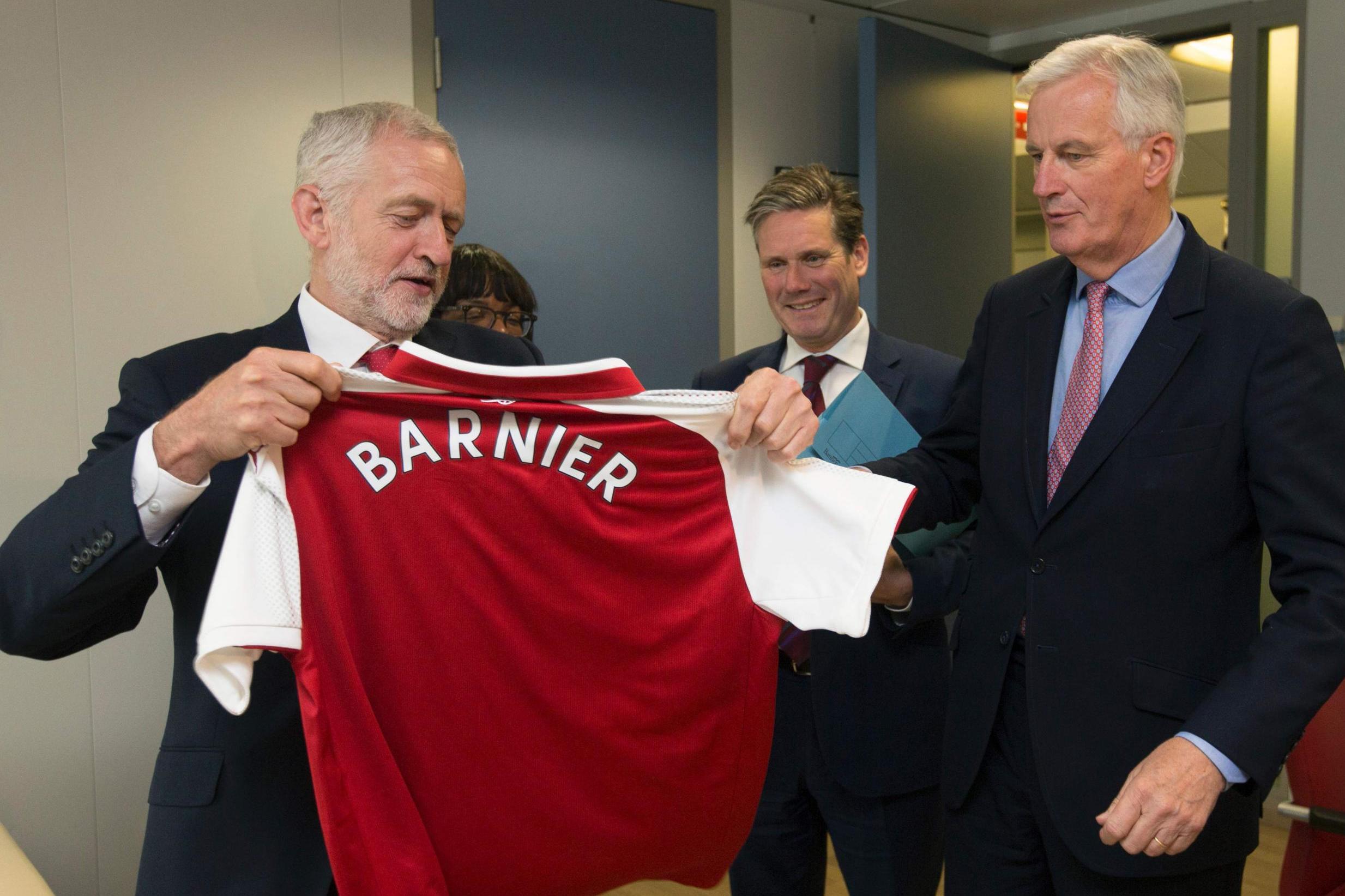Time is running out for Corbyn to make his mind up about Labour’s stance on Brexit
While Corbyn somehow appealed to both Leavers and Remainers during the election, it couldn’t last and make-your-mind-up time is now approaching. ‘The trouble with riding two horses is that eventually you fall off,’ said one Labour MP


There is a left-wing case for leaving the European Union and it was made eloquently in London last week by the Harvard University professor Richard Tuck, who argued that Brexit would benefit the left more than the right.
On a tactical level, Scotland would be more likely to remain in the UK, enhancing Labour’s prospects of winning power. More fundamentally, Tuck said, the EU is hostile to socialism, so after Brexit, “the space available to left-wing policies would suddenly expand, and all sorts of possibilities, including such things as thoroughgoing nationalisation or differential regional taxes, would be on the table again”. To which Corbyn allies might add state aid and favouring the public sector for state-funded contracts.
It is unlikely that Jeremy Corbyn was in Tuck’s audience as he was addressing Policy Exchange, the think tank closely associated with David Cameron’s Tory modernisation project. But it looked as if Corbyn might have been there when he appeared on the BBC’s Andrew Marr Show on Sunday and rejected membership of the single market. Then Barry Gardiner, the Shadow International Trade Secretary, went further by opposing staying in the EU customs union. It appeared that Labour endorsed Theresa May’s hard Brexit, even though the electorate did not last month, and was letting the Conservatives off the hook.

In fact, Labour’s position is more nuanced. Thankfully, Corbyn’s office slapped down Gardiner, who seems to mirror his opposite number Liam Fox in his enthusiasm for post-Brexit trade deals with non-EU countries. This is hardly surprising, since both men would be virtually out of a job if the UK remained in the customs union, which would rule out trade deals with third countries.
It is true that Labour’s divisions on Brexit are much smaller than among the Tories, who dare not risk a leadership contest that would expose theirs to full public view. Corbyn masked his party’s tensions skilfully at the election. A pledge to end free movement reassured white working class voters worried about immigration. A promise to fight for the benefits of the single market and customs union persuaded many pro-EU voters, especially younger ones, that Labour was on their side.
While Corbyn somehow appealed to both Leavers and Remainers, it couldn’t last and make-your-mind-up time is now approaching. “The trouble with riding two horses is that eventually you fall off,” said one Labour MP. “The real split in the party now is not left versus right but over Brexit.”
Corbyn’s long-standing Eurosceptic instincts, and desire to implement Labour’s manifesto without constraints from Brussels, make Brexit attractive on one level. However, the election has made his dilemma even more acute. Some Labour MPs now believe that Brexit can be stopped, if an apparent shift in public opinion – which now prioritises the economy over controlling immigration – grows.
But two in three Labour MPs represent seats which voted Leave last year, and the party needs to do better among the working classes to win the next election. Corbyn also promised to accept the referendum decision, so going back on that would be a huge risk. As Caroline Flint, a Labour MP, told the same Policy Exchange event: “We cannot spend the next 18 months voting down every one of the Tories’ EU Bills. If we do so, we will look like liars.”
Yet Europe is the only big issue on which Corbyn is out of step with Labour’s 550,000 members. A survey by the Economic and Social Research Council found that two-thirds back membership of the single market and customs union and half support a referendum on the exit deal – the Liberal Democrats’ position.
There is also pressure from several trade unions on Corbyn to adopt a tougher stance and support single market membership. Some go further. Manuel Cortes, general secretary of the Transport Salaried Staffs’ Association, wrote in the New Statesman: “If as I suspect, staying in the EU is the best deal on offer in 2019, we should not deny voters the possibility of taking it.”
Labour’s stance matters. When Parliament resumes in September, it will debate the Repeal Bill, the first of eight Brexit measures. Although soft Brexiteers would need the backing of only seven of the 20-30 pro-European Tories to defeat the Government, this sum adds up only if the Labour front bench is onside. Perhaps Corbyn would be tempted to join forces with pro-Europeans in other parties if he thought that defeating May might bring about a general election (although the Tories would move heaven and earth to prevent that).
Despite Tuck’s speech, there is also a left-wing case for staying in the single market – to protect investment, jobs, living standards and workers’ rights. Corbyn should now make it. The Labour leader seems to be playing a waiting game to see if voters turn decisively against Brexit. But, as he has done bravely on austerity, he should lead rather than follow public opinion by opposing May’s hard Brexit rather than endorsing it.
Join our commenting forum
Join thought-provoking conversations, follow other Independent readers and see their replies
Comments
Bookmark popover
Removed from bookmarks